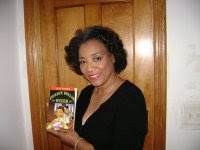From the Associated Press:
DALLAS (AP) - Nikolas Colton Evans had talked about how much he wanted to have a child, but the 21-year-old died after he was punched and hit his head on the ground in a fight. That would have been the end of it, if it weren't for his determined mother, a court order and a urologist.
Missy Evans has harvested her dead son's sperm and hopes to find a surrogate and one day raise her son's child. It's a decision that ethicists say raises troubling questions; one called the potential offspring a "replacement child."
Evans isn't concerned about what others might think. She says she is only doing what her son would have wanted.
"He would love me so much for doing this," she said.
Austin police say Nikolas Evans was punched during a fight on an Austin street early March 27 and then fell to the ground, striking his head. He died April 5. Police are still trying to identify the person who hit him.
After a doctor told her that nothing more could be done for her son, Missy Evans came up with the idea of harvesting his sperm. She discussed the idea with her ex-husband, her older son and other family members, and said all supported her wish to help a part of Nikolas live on through his future offspring.
She said her son once told her he wanted three sons and had already picked out names. She described Nikolas as an "old soul" interested in filmmaking, politics, music and old movies.
"My son wanted to graduate from college. He wanted to have children. And someone took that away from him," said Evans, 42, of Bedford, located between Dallas and Fort Worth.
Evans had to go to court to get permission to harvest his sperm. On Tuesday, a Travis County probate judge granted her wish - ordering the county Medical Examiner's Office to keep her son's body chilled to at least 39.2 degrees and allow access so an expert could take the specimen.
Evans' attorney Mark Mueller said no one opposed the plan.
An Austin urologist volunteered her services and collected testicular tissue from the body Wednesday night. Missy Evans said she's been told much of the sperm is viable and is making plans for it to be stored.
Decisions such as Evans' must be made quickly, and allow little time for a grieving person to reflect on the choice, one ethicist said.
Using the sperm brings up more issues.
"That child's biological father will be dead. The mother may be an egg donor, anonymous or gestational surrogate," said Tom Mayo, director of Southern Methodist University's Maguire Center for Ethics and Public Responsibility.
"This is a tough way for a kid to come into the world. As the details emerge and the child learns more about their origins, I just wonder what the impact will be on a replacement child," Mayo said.
He said the desire to replace a deceased child is a classic scenario that, in this case, took a nontraditional turn.
"The underlying desire would be very strong, even if she wouldn't describe it that way," he said.
Art Caplan, chair of the department of medical ethics at the University of Pennsylvania in Philadelphia, said that in the past decade there have probably been about 1,000 such requests by spouses, mothers, girlfriends and others in the U.S. - but most "don't wind up using it."
Caplan said hospitals may have protocols for dealing with such requests, but there are few laws or regulations regarding the practice. It's usually up to a urologist to decide whether to perform the procedure, he said.
It would be rare for a child to be born from sperm retrieved from a dead person, said Melissa Brisman, an attorney on the American Fertility Association's legal advisory council.
"This is an unexpected death in which there are tons of emotions and you don't even know if you want to do it," she said.
Mark Vopat, a professor of philosophy and religious studies at Youngstown State University in Ohio, questions whether the court should have granted the mother's request. He said that while Nikolas Evans may have told his mother he wanted children someday, it's wrong to assume he also would have wanted to father a child posthumously if he died prematurely.
"This is a disturbing sort of case," he said.
Missy Evans said she is unsure when she'll be ready to seek a surrogate to carry her son's child. But she added that she has no second thoughts about the plan.
"This is probably going to bankrupt me and I will do whatever I can to make it happen," she said.
You Finished The Book - Now What Did You Think
13 years ago

1 comment:
This is not a disturbing case - "test tube" babies or whatever the new vernacular is what is disturbing.
Many of the children born from these "frozen" eggs have disabilities or too many are implanted and result in multiple births as in Octo-mom.
This is not a criticism or rejection of special needs children - as children born the "regular" way can have disabilities - it is just information to all who wish to conceive children in this manner, other than that, the mother and family should go for it and may they have a happy, healthy family adn research must continue to make "test tube" children less error-prone.
Post a Comment